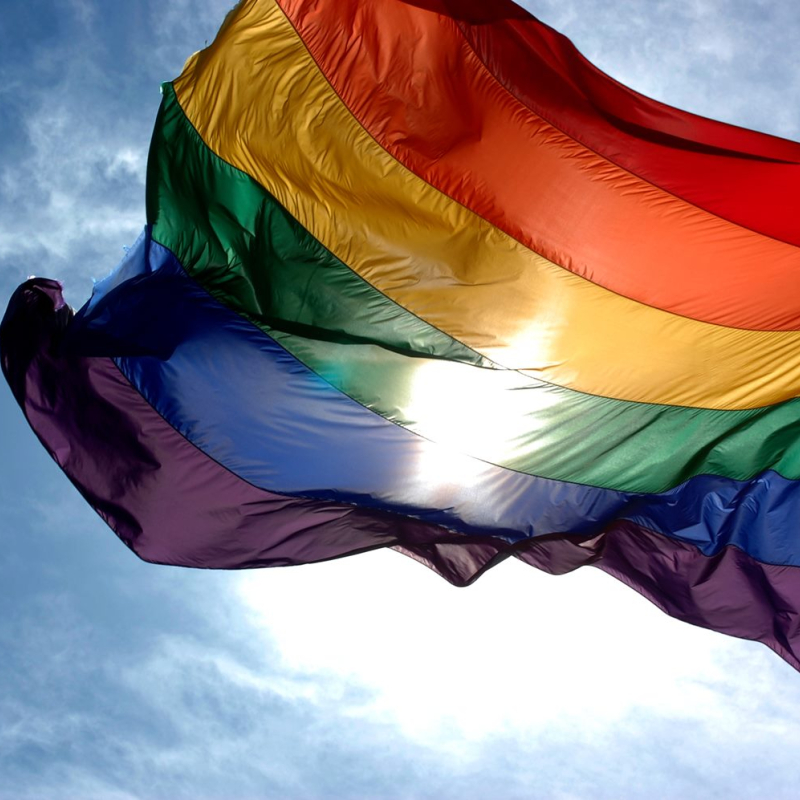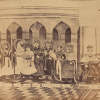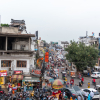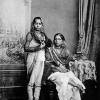Section 377 didn’t just decriminalize homosexuality—it promises a wider autonomy from state intrusion that remains to be tested on the ground (Photo source: Ludovic Bertron/Wikimedia Commons/Flickr)
On rare occasions, the state, ‘cold monster’ as it was once described, brings sheer joy. On September 6, 2018, the verdict reading down Section 377 of the Indian Penal Code decriminalized homosexuality and affirmed the fundamental rights and dignity of LGBT persons.
At yet, the problem redressed by law was created by it in the first place. The antisodomy statute was introduced by the British colonial state in 1860, specifically intended for the colonies, even while England did not have a law paralleling Section 377. Custodians of the postcolonial penal code, too, embraced the law, revealing the lasting effects of Victorian sexual moralities on the nation’s social and legal fabric. Not surprisingly, when the group, AIDS Bhedbhav Virodhi Andolan (ABVA) filed the first legal challenge to the law in the form of a public interest litigation (PIL) in 1994, the Delhi High Court did not take it seriously.
The Delhi High Court justices dismissed, too, on a mere technicality another PIL filed in 2001 by Naz Foundation (India) Trust. The court later reconsidered the Naz Foundation writ at the behest of a Supreme Court order, resulting in the historic 2009 decision to decriminalize homosexuality, only to have it reversed by two justices of the apex court. The Supreme Court dismissed without so much as a hearing the follow-up petition to reconsider its ruling and the last step in the appeal process, the curative petition, had also been languishing. Only now, almost 160 years later, has the criminalization of homosexuality been given its legal due.
Legal histories are much easier to document; capturing the untold ordinary lives that have been lost to injustice and discrimination is far more difficult. The long-drawn struggles, that have been decades in the making and have led to the apex court’s verdict, help fill in the gaps. I started researching the efforts to undo Section 377 in 2003, following the Naz Foundation’s 2001 writ petition, which gained considerable traction once the government filed a legal response in 2003. What is significant here is that the government’s response galvanized a wide range of constituencies that, despite their political and ideological differences, united in opposition to Section 377. As a recent account of ABVA’s preceding role in decriminalizing homosexuality also attests, the struggle has always been coalitional.[i]
Over the years, the alliance has included legal experts, a broad range of non-governmental organizations, non-funded autonomous groups, especially feminist collectives, parents of LGBT children, academics and scholars, activists, and innumerable others. It spans the length and breadth of the country, the spectrum of sexual orientations, gender identities, faiths, castes, ethnicities, and politics.
The coalition makes it clear that even though some individuals and groups may be at the forefront of the legal campaigns, and the verdict stands to directly impact sexual and gender minorities, decriminalizing homosexuality has even wider implications. Colonial administrators placed Section 377 alongside violent offences relating to the body, such as rape, kidnapping, and assault. Furthermore, its language was not specific to particular identities but to sexual practices, thereby potentially criminalizing heterosexual practices that could fall within its purview.
The challenges ahead
Even though the apex court’s decision settles this issue for all consenting adults, Section 377 is usefully understood as part of a broader corpus of laws through which states regulate bodies and sexualities. Especially if we were to take a broad view of sexuality, seeing it not just as sexual practices and identities, but also in terms of reproduction, fertility, and such, then the decriminalization of homosexuality relates to much more—from surrogacy and birth control to who can consent to sex. Therefore, all of us should celebrate this autonomy from state intrusion.
But, issues of autonomy and dignity require ongoing vigilance, for the history of the struggle to decriminalize homosexuality is also a cautionary tale about which groups benefit from protections extended by the state and which ones remain outside the fold.
It has already been noted that the Supreme Court ruling does not apply to Jammu and Kashmir, which is governed by the Ranbir Penal Code.[ii] Furthermore, to what extent will the ruling reduce homophobia and transphobia that are deeply rooted in social and cultural assumptions about what is normal and unnatural? Will it abate the ongoing state and social forms of violence, the brunt of which is borne by hijras, transwomen and transmen? Will the police be kinder to those who do not have access to privacy for sex or those who solicit sex for livelihood? Does this mean that a host of other laws—which includes vagrancy and public nuisance codes and the Immoral Traffic (Prevention) Act—will be not be used to persecute gender and sexual minorities? Will, in fact, police constables and their supervisors at Delhi police stations reconsider the misplaced beliefs that Muslims are more prone to sexually 'deviant' behaviour? In other words, how will the antisodomy law’s tight links to gender, religious, caste, and class differences unravel as a result of decriminalization?
The ruling’s implications will become clearer in the long run. What will also be clarified is the extent to which this unequivocal affirmation of the rights of LGBT people transfers to caste, religion, and other aspects of people’s lives where autonomy, equality, and dignity are still embattled. Will the statements issued by the five apex court justices decrying discrimination extend to other aspects of individuality and other kinds of communities? For now, though, we celebrate and savour the promises, for triumphant moments such as these pass too quickly into the annals of history and ongoing struggles for justice.
Views expressed are personal.
[i] Shobha Aggarwal, 'India: Reminiscing ABVA’s Struggle for Gay Rights in the Twentieth Century – A Brief History of That Time', 2018, http://www.sacw.net/article13888.html.
[ii] Aarti Tikoo Singh, 'SC decriminalizes gay sex, but J & K LGBTs will have to wait a little longer', 2018, https://timesofindia.indiatimes.com/india/section-377-pride-not-extended-to-jk/articleshow/65714300.cms.












